Siem Reap, Cambodia —
Last Friday, the British charity PDSA* gave out its gold medal award for bravery – to a rat named Magawa. Magawa, and other rats like him, are saving countless lives by sniffing out deadly mines that have remained hidden for years.
Magawa is an African giant pouched rat, so he’s a little bigger than normal rats. He was born in Tanzania in 2014, and from a young age he was trained to sniff out TNT – the chemical combination used in many bombs. The training normally takes about a year.
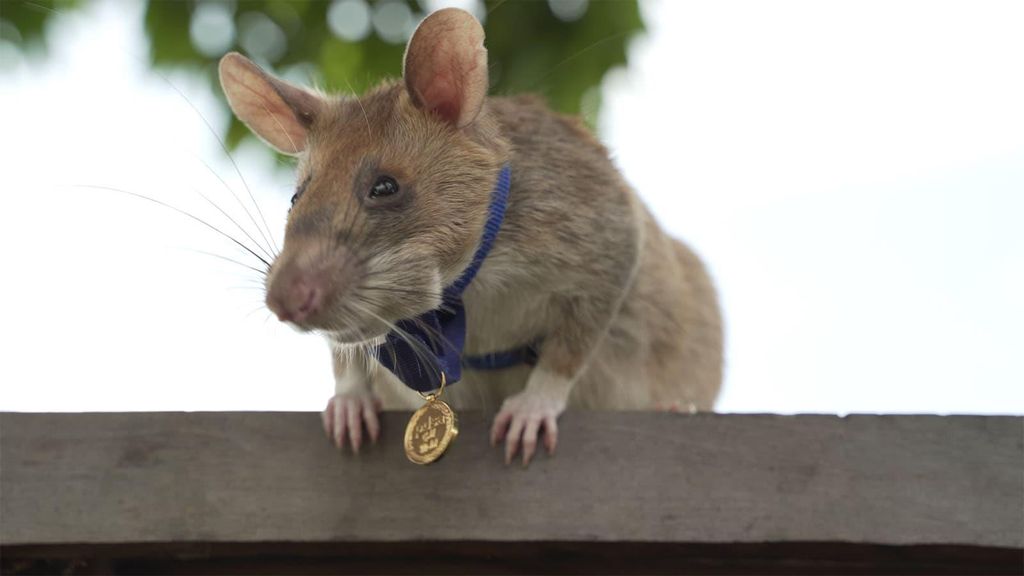
(Source: PDSA.)
Why sniff out explosives? In many parts of the world where there have been wars, there are often unexploded bombs still around. But Magawa’s main job is to sniff out a trickier kind of bomb, known as a mine.
Mines are bombs that are hidden, usually underground. They’re designed to go off after someone steps on them or drives over them. These bombs are deadly and can remain hidden for years – long after the war they were used in has ended.
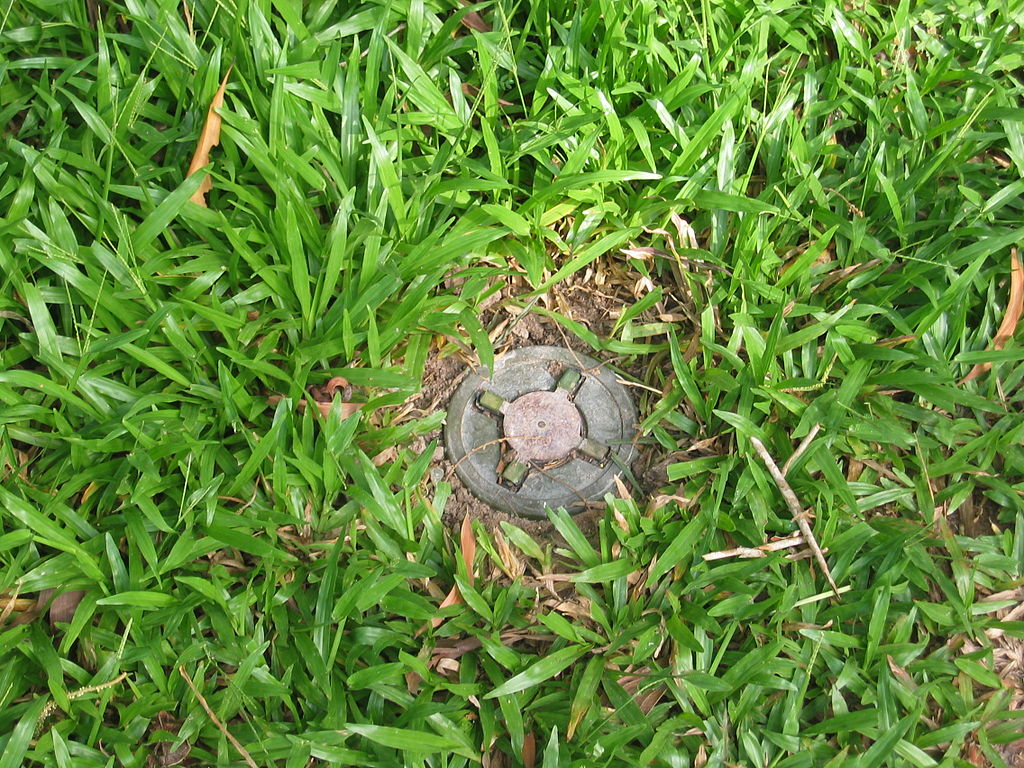
(Source: Reedhawk [CC BY-SA], via Wikimedia Commons.)
In Cambodia, where Magawa works, mines were common during long periods of civil war between 1975 and 1988. During that time, around 5 million mines were planted in the country.
About half of Cambodia’s minefields haven’t yet been cleared. Since 1979, these mines have killed or injured over 64,000 people. At least 25,000 people in Cambodia have lost body parts because of exploding mines.
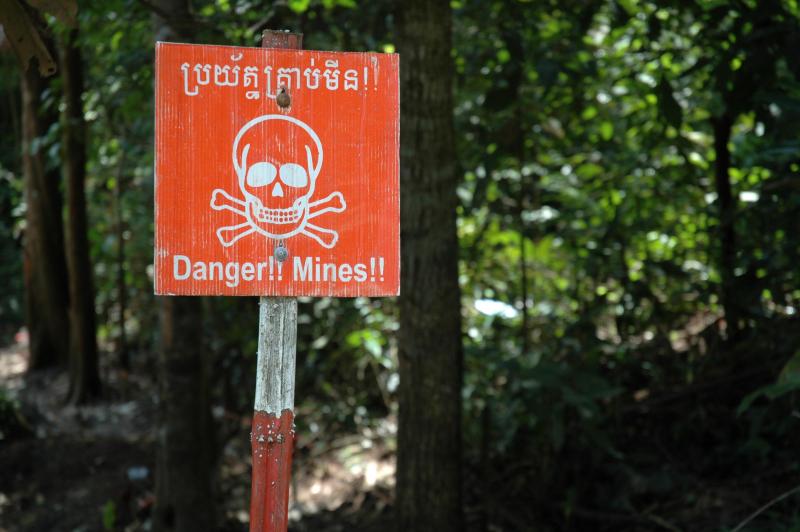
(Source: Jpatokal [CC BY-SA], via Wikimedia Commons.)
Magawa and several other rats are part of the “Hero Rat” program run by a group called APOPO. Because the rats are so light, there’s little danger that they will accidentally set off a mine.
Magawa is taken out to a minefield, which he carefully goes over, section by section. Magawa’s main handler, Malen, guides him carefully across the field on a leash. When Magawa finds a mine, he scratches at the dirt above it, signaling that he’s found something.
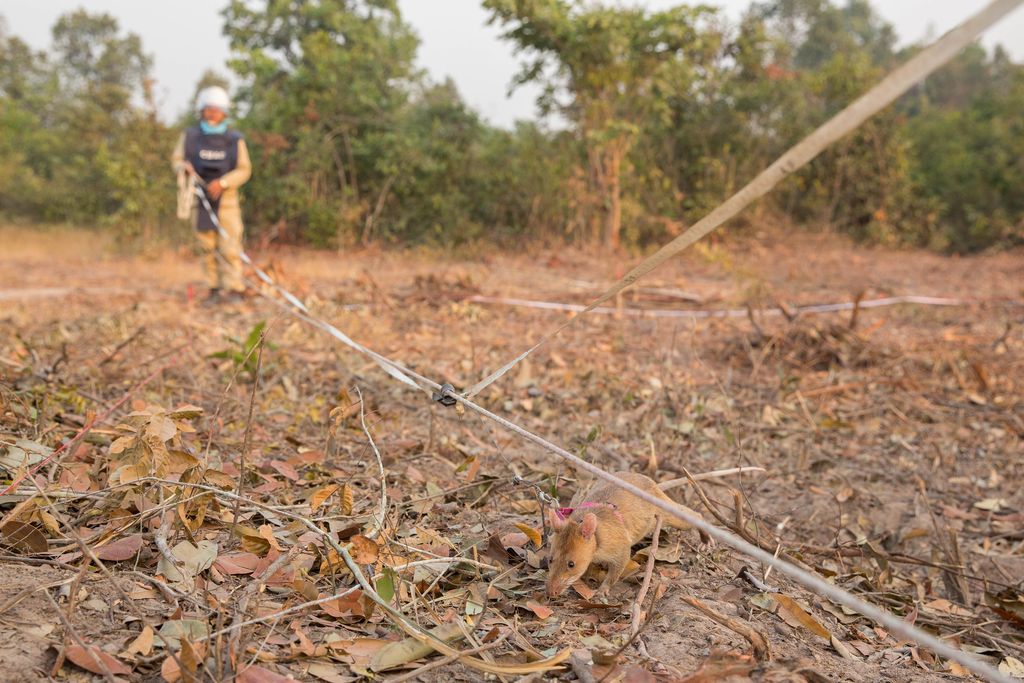
(Source: Briana Marie, APOPO.)
Because the rats work by sniffing, instead of using metal detectors, they’re very fast. It only takes Magawa 30 minutes to search an area as big as a tennis court. A human doing the same job would take four days.
Malen says that Magawa is very confident in the field. He works quickly and is easily able to make decisions about whether something is a threat or not. “But,” Malen adds, “He is also the first one to take a nap during a break.”
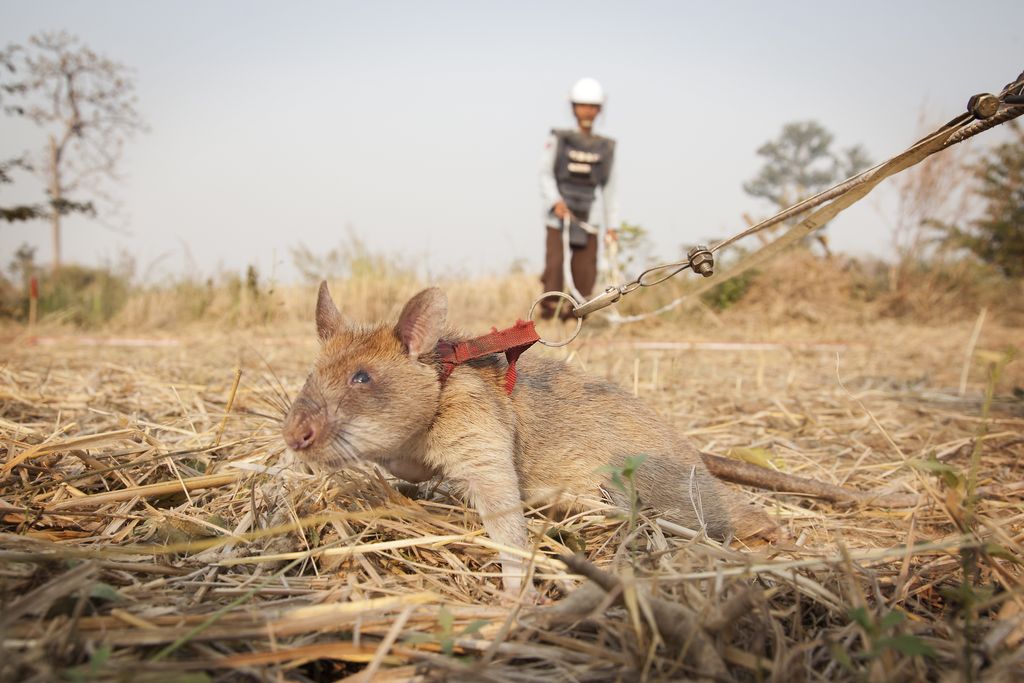
(Source: APOPO.)
Magawa is the star sniffer of the Hero Rat program. He’s found 39 landmines and 28 bombs that were dropped from planes, but never exploded.
And he’s not just saving lives, he’s also making dangerous land usable again. Over the past 4 years Magawa has helped to clear more than 168,635 square yards (141,000 square meters) of land.
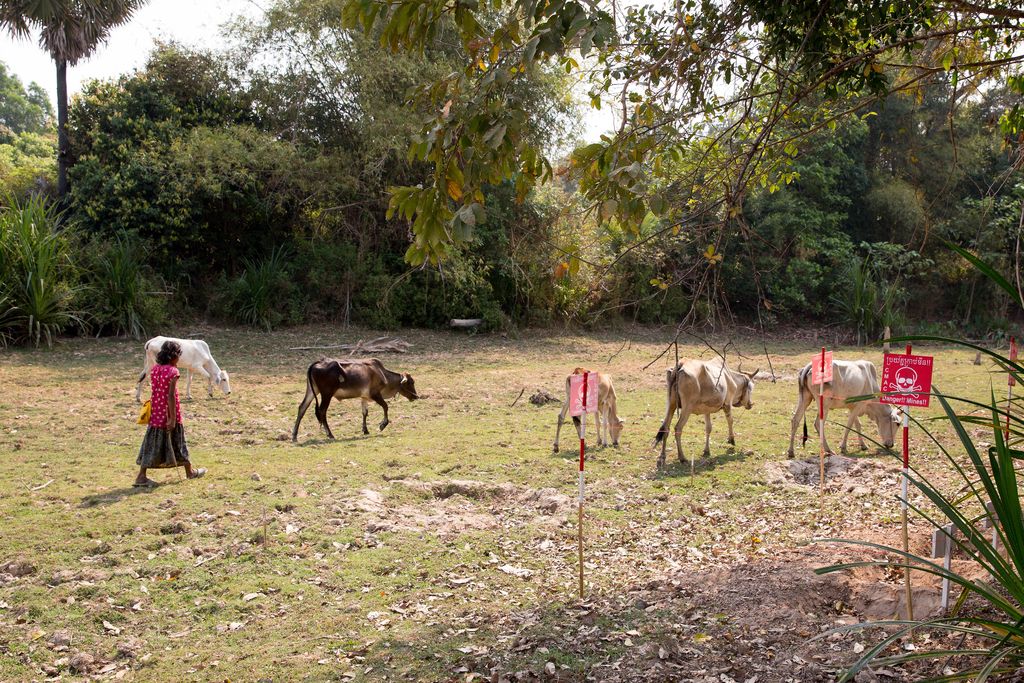
(Source: Briana Marie, APOPO.)
Magawa is seven years old, and he may be retiring soon. APOPO is thankful for the work that the rats do, and makes sure that the rats are very well treated when they retire.
To honor Magawa, the PDSA made a special gold award that was small enough for Magawa to wear.
Did You Know…?
The PDSA has been giving awards to brave animals for over 75 years. This is the first time the award has gone to a rat. Before this, all of the Gold Medal winners were dogs.
* PDSA stands for People’s Dispensary for Sick Animals. The group works to provide veterinary care for pets whose owners can’t afford it.
